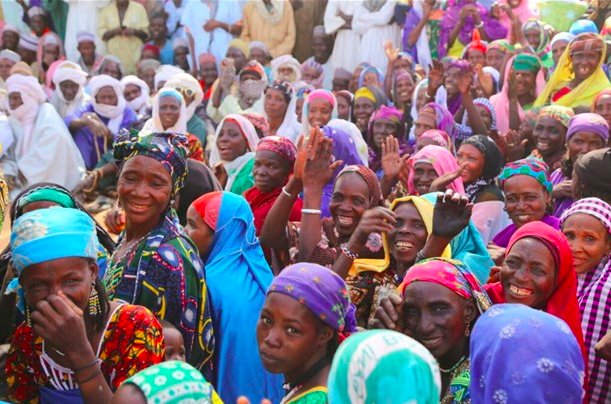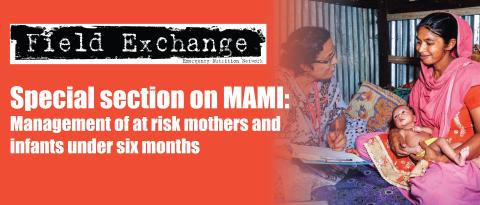Effect of an emergency cash transfer programme on weight gain and acute malnutrition risk in Niger
Research snapshot1
Assessment of the impact of emergency cash transfer programmes on child nutritional status has been difficult to achieve due to the considerable logistic and ethical constraints that characterise humanitarian settings. A quasi-experimental longitudinal study was undertaken of a conditional emergency cash transfer programme implemented by Concern Worldwide in 2012 during a food crisis in Tahoua, Niger, in which the use of a concurrent control group permitted estimation of the programme’s impact on child weight gain.
Programme beneficiaries received three transfers totalling approximately 65 per cent of Niger’s gross national per capita income and mothers attended mandatory sessions on child and infant feeding and care practices. Dietary and anthropometric data from 211 vulnerable households and children targeted by the intervention were compared with 212 similarly vulnerable control households and children from the same 21 villages. Multi-level mixed effects regression was used to estimate changes in weight and weight-for-height z-scores (WHZ) over time. Logistic regression was used to estimate the probability of acute malnutrition.

Results showed the intervention to be associated with a 1.27 kg greater overall weight gain (P < 0.001) and a 1.82 greater overall gain in WHZ (P < 0.001). The odds of having acute malnutrition at the end of the intervention were 25 times higher among children in the comparison group than those in households receiving cash (P < 0.001).
The authors conclude that this emergency cash transfer programme promoted child weight gain and reduced the risk of acute malnutrition among children in the context of a food crisis. The authors suspect that the use of strategic conditional terms and a valuable transfer size were key features in achieving this result.
Future studies of this nature would benefit from pre-baseline measurements, more exhaustive data collection on household characteristics and transfer use, and further investigation into the use of conditional terms in emergency settings.
Endnote
1Bliss J, Golden K, Bourahla L, Stoltzfus R and Pelletier D. (2018). An emergency cash transfer program promotes weight gain and reduces acute malnutrition risk among children 6-24 months old during a food crisis in Niger. Journal of Global Health. 2018 Jun;8(1):010410.


